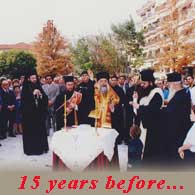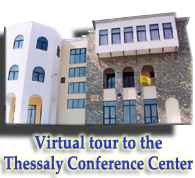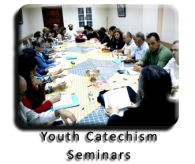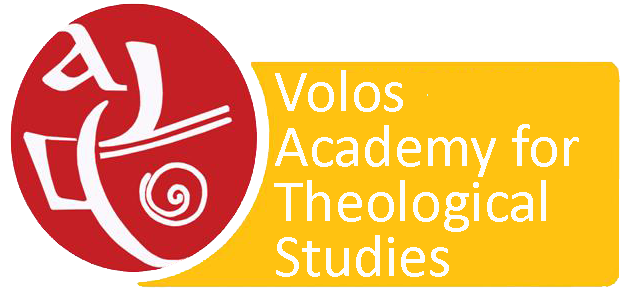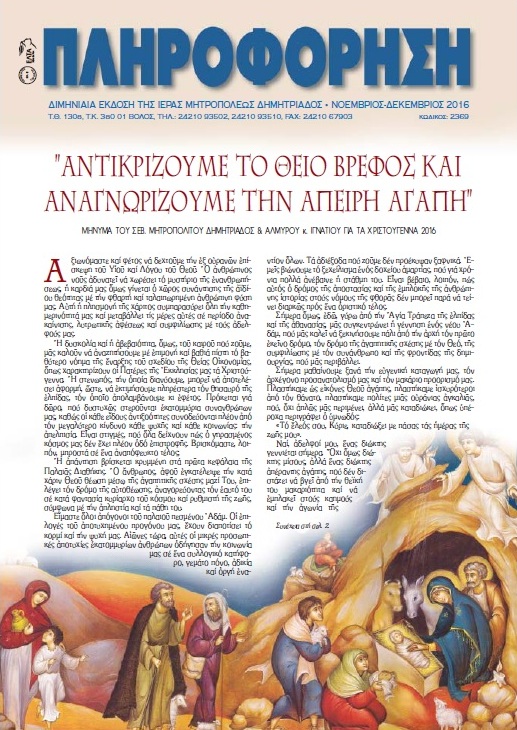Prof. Richard Swinburne delivered two Lectures and a Seminar in Volos and Athens (Greece)
Dr. Richard Swinburne, is Emeritus Professor of the Philosophy of the Christian Religion, University of Oxford, Emeritus Fellow of Oriel College, Oxford and Fellow of the British Academy. Over the last 50 years Swinburne has been an influential proponent of philosophical arguments for the existence of God. His philosophical contributions are primarily in the philosophy of religion and philosophy of science. He aroused much discussion with his early work in the philosophy of religion, a trilogy of books consisting of The Coherence of Theism (1977), The Existence of God (1979), and Faith and Reason (1981). Dr. Swinburne formulated five categories into which all religious experiences fall, the public and the private with the related subcategories, while he has also coined two principles for their assessment, namely the principle of credulity and the principle of testimony. He has authored numerous books such as: Epistemic Justification, 2001, The Resurrection of God Incarnate, 2003, Free Will and Modern Science, Ed. 2011, Mind, Brain, and Free Will, 2013.
The topic of his lectures was “The existence of God and the challenge of modern atheism” and “The existence of evil and the problem of theodicy”. In Athens, Professor Swinburne delivered both lectures (May 5th, K. Palamas Building, University of Athens) while in Volos (May 6th, Thessalia Conference Center, attended by the Metropolitan of Dimitrias Ignatius) only the first one.
In his lectures an attempt was made by Professor Swinburne to give his comprehensive and coherent overview on the arguments of the existence of God. In this perspective he pointed out two principles of assessing the religious experience: The Principle of Credulity (PC): ‘Believe what seems to you to be so – in the absence of counter-evidence’. The Principle of Testimony (PT): ‘Believe what anyone tells you – in the absence of counter-evidence’. While many people may believe that there is a God in virtue of PC because of their religious experience, or in virtue of PT because of their upbringing, in the modern world where there is so much counter-evidence, most people need natural theology, that is arguments from the most general features of the world (positive evidence) to the existence of God, if their belief is to be rational.
Observed evidence E makes a purported causal explanation of it, H, probable, in so far as
(1) if H is true, it is probable that E.
(2) if H is false, it is not probable that E.
(3) H is simple
(4) H fits with 'background evidence' (knowledge of how the world works in wider fields).
These criteria operate when we explain any E, whether the pattern of explanation is personal (by persons having certain powers, beliefs and purposes) or scientific (by initial conditions, and laws of nature which are ultimately generalizations about the powers and liabilities of all fundamental particles and so of the larger entities which they compose). A hypothesis is simple insofar as it postulates the existence of few entities, few kinds of entities, few properties, few kinds of properties, mathematically simple degrees of and relations between properties.(A mathematical relation or entity X is simpler, the fewer other relations and entities on which its definition depends. Hence 2 is simpler than 3,785; and so too is 0.).
For present purposes let:
H=”There is a God”, that is an essentially everlasting, omnipotent, omniscient, and perfectly free person. A person is a being with power, knowledge, and freedom of choice, who lives for a certain time. An essentially everlasting person is one to whose life there are zero (that is, 0) limits, an omnipotent person is one to whose power there are zero limits, an omniscient person is one to whose knowledge there are zero limits, and a perfectly free person is one subject to zero causal influences on how he chooses (and so will be influenced by reason alone, and so, if also omniscient, will be perfectly good.) Hence theism in postulating God is postulating one person of the simplest kind there could be. Hence criterion (3) is satisfied very well.
E=There is a physical universe; it is governed by simple laws of nature; these laws are fine-tuned to produce humans; humans are conscious.
Since humans have a unique kind of goodness (the power to choose between good and evil, and thereby benefit or harm themselves and each other), it is quite probable that a good God will create them. For this purpose they need bodies, hence a physical universe; they need to know how to benefit or harm, hence simple laws of nature determining the effects of their actions; the laws need to keep their bodies in existence; and they need to be conscious in order to choose and feel effects. Hence H satisfies criterion (1). If H is false, E would be an enormous improbable coincidence. Hence H satisfies criterion (2) very well. Criterion (4) is irrelevant to a very large-scale theory such as theism. Hence by my four criteria E makes H very probable.
But what about the sovereign counter-argument against the existence of God based on the problem of the existence of evil?
According to Professor R. Swinburne God is (by definition) omnipotent (able to do anything logically possible), omniscient (knows everything logically possible to know), and perfectly free (not subject to irrational influences on how he chooses). From this it follows that he is perfectly good. Yet he allows bad things to happen. Theodicy is the task of explaining how that is compatible with his perfect goodness.
God may allow an evil E to occur, while remaining perfectly good, so long as:
1. There is some good G, such that it is logically impossible for God to bring about G in any other logically possible way except by allowing E (or an evil equally bad) to occur. (e.g. God cannot give you the opportunity freely to choose either to be kind to me or to cause me to suffer (G) except by allowing me to suffer (E); God cannot give you the opportunity to form your character by making difficult choices except by subjecting you to temptation.)
2. God does bring about G (e.g. God gives you the above free and responsible choice)
3. God has the right to allow E to occur. (God’s right arises from his being our supreme benefactor. He keeps us in existence from moment to moment and (over time) gives us on balance a good life. If the earthly part of someone’s life is not on balance good, God must ensure that that person has a period of after-life so their total life is on balance good)
4. The expected negative value of allowing E to occur does not exceed the positive good value of G. (Our failure to recognise that this condition holds often arises from our ignoring the fact that being-of-use is a benefit for the person whose life is of use.)
The topic of the seminar (Athens May 9th, “En Plo” Bookstore, Atrium Shopping Center) was “The existence of Evil and the problem of theodicy”, where Professor Swinburne summarized the basic aspects of his argument. After the brief speech of the featured speaker, the two round table participants, Dr. Stelios Virvidakis, Professor Department of Methodology, History of Philosophy and Science, University of Athens, Greece, and Rev. Evangellos Ganas, Theologian, Electrician Engineer, Priest of St. Meletios Parish, in Athens, Greece responded by brief interventions to Professor’s argumentation.
The seminar was attended by, among others, professors of the Theological Faculty of Athens, scholars, scientists from other disciplines (medicine, psychoanalysis etc.) graduate and doctoral students, etc. The Volos Academy for Theological Studies will take care of the publication of the text in Greek and English language.










